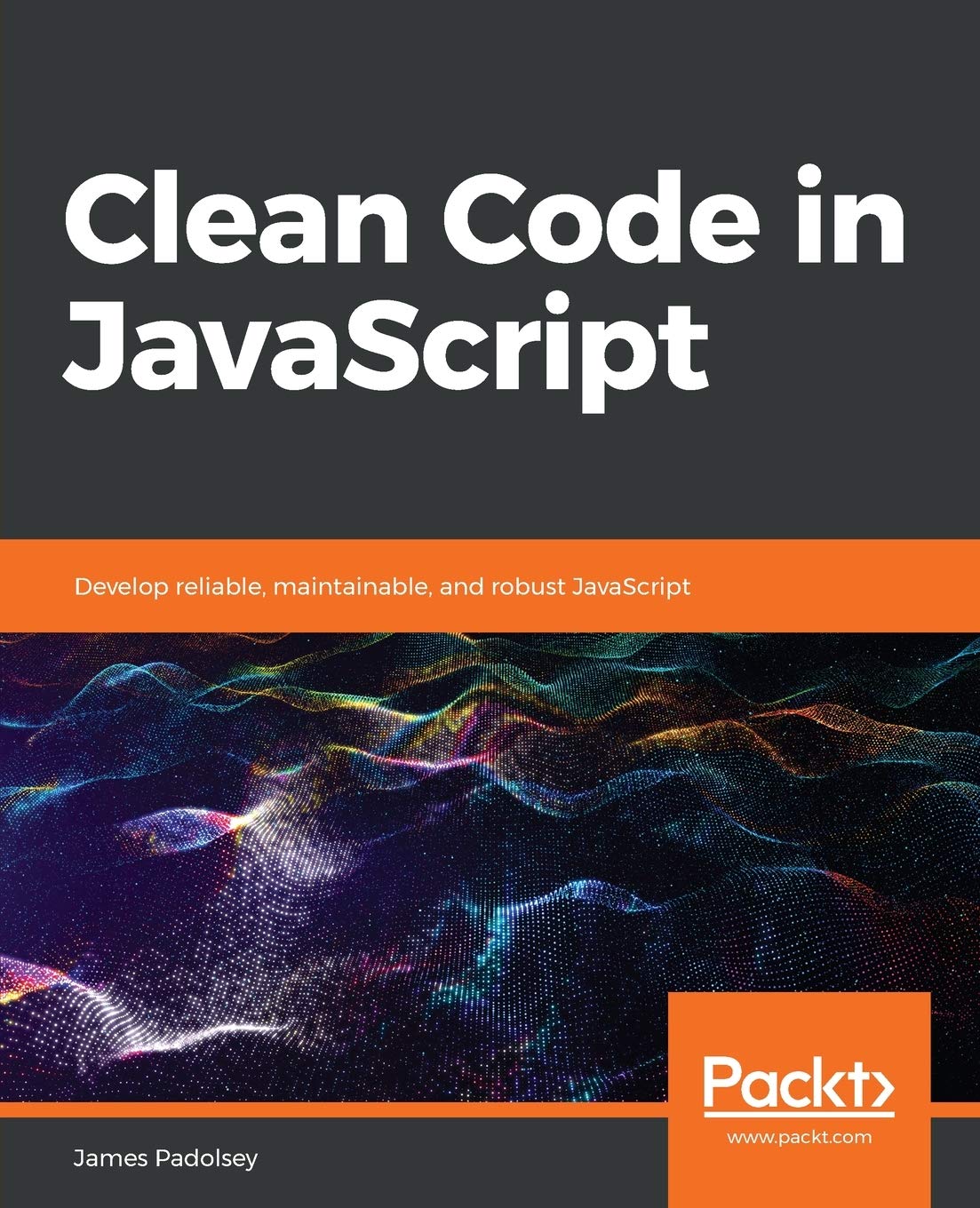
Description:
About this item:
Editorial Reviews
About the Author
James Padolsey is a passionate JavaScript and UI engineer with over 12 years' experience. James began his journey into JavaScript as a teenager, teaching himself how to build websites for school and small freelance projects. In the early years, he was a prolific blogger, sharing his unique solutions to common problems in the domains of jQuery, JavaScript, and the DOM. He later contributed to the jQuery library itself and authored a chapter within the jQuery Cookbook published by O'Reilly Media. Over subsequent years, James has been exposed to many unique software projects in his employment at Stripe, Twitter, and Facebook, informing his philosophy on what clean coding truly means in the ever-changing ecosystem of JavaScript.
Review:
4.1 out of 5
82.86% of customers are satisfied
5.0 out of 5 stars My Favorite Software Engineering Book Ever
(function() { P.when('cr-A', 'ready').execute(function(A) { if(typeof A.toggleExpanderAriaLabel === 'function') { A.toggleExpanderAriaLabel('review_text_read_more', 'Read more of this review', 'Read less of this review'); } }); })(); .review-text-read-more-expander:focus-visible { outline: 2px solid #2162a1; outline-offset: 2px; border-radius: 5px; } This book was very important in my JavaScript journey. It teaches concepts that transcend the language of JavaScript (clean code, smart abstractions, architectural patters, working with others, etc.). I would recommend it for anybody novice to pro.I would not, however, recommend this as your very first JavaScript book/course. This book is mostly useful if you already have some JavaScript experience. If you are brand new to JavaScript, I would start with at least one more intro book/course before moving on to this.
5.0 out of 5 stars Should be mandatory read for developers
I used to recommend great book "Secrets of the Javascript Ninja" by John Resig and Bear Bibeault as most important book to understand JavaScript for junior developers. This book is just as good and more relevant now that ES6+ and TypeScript are default and popular way to code in JavaScript. I highly recommend it.I'm a very experienced developer and still learned quite a bit I'd either forgot or never thought about. Book will make your code less smelly and worth reading cover to cover.
2.0 out of 5 stars Not very good
The author is clearly very skilled with JavaScript, however there are numerous places where simple errors are very annoying. The author will say there are 8 ways a Boolean is false and then has a bullet list of 7 items, this type of error occurs in multiple places.The Author will clearly speak to the Law of Demeter and later in the book will violate it in the code examples.I was disappointed by this book.
5.0 out of 5 stars Excellent
Excellent
An ok intro to clean code concepts
(function() { P.when('cr-A', 'ready').execute(function(A) { if(typeof A.toggleExpanderAriaLabel === 'function') { A.toggleExpanderAriaLabel('review_text_read_more', 'Read more of this review', 'Read less of this review'); } }); })(); .review-text-read-more-expander:focus-visible { outline: 2px solid #2162a1; outline-offset: 2px; border-radius: 5px; } The book felt a little rushed. It is littered with grammar mistakes, and even the code snippets had syntax errors! I found the chapters very short and lacking in real-world examples; you could easily get more value by skimming the titles and searching the internet for more in-depth, update-to-date, and relevant information (which, honestly, it feels like that's how this book was written, by stitching together information from such searches).For better books and articles on clean code, I'd recommend looking into authors like Martin Fowler, Michael Feathers, and Robert Martin.
Take your time to absorb these concepts!
The book is not for the feint-hearted. It makes you think a lot about the ways you write code .. all the way up to thinking about what we're even doing when we are creating software for users (it gets deep). Respecting the users' needs. And seeing fellow programmers as 'users' as well. In a way, tho the book is for JS developers, a tonne of what it covers, especially in the first few chapters, are really applicable to all people who design and create software or web apps.
Well written, clear and accessible
The book addresses several issues to raise awareness before, during and after writing the code. Recommended
Visit the Packt Publishing Store
Clean Code in JavaScript
BHD27188
Quantity:
Order today to get by
Free delivery on orders over BHD 20
Product origin: United States
Electrical items shipped from the US are by default considered to be 120v, unless stated otherwise in the product description. Contact Bolo support for voltage information of specific products. A step-up transformer is required to convert from 120v to 240v. All heating electrical items of 120v will be automatically cancelled.
Similar suggestions by Bolo
More from this brand
Similar items from “Algorithms”
Share with
Or share with link
https://www.bolo.bh/products/U1789957648